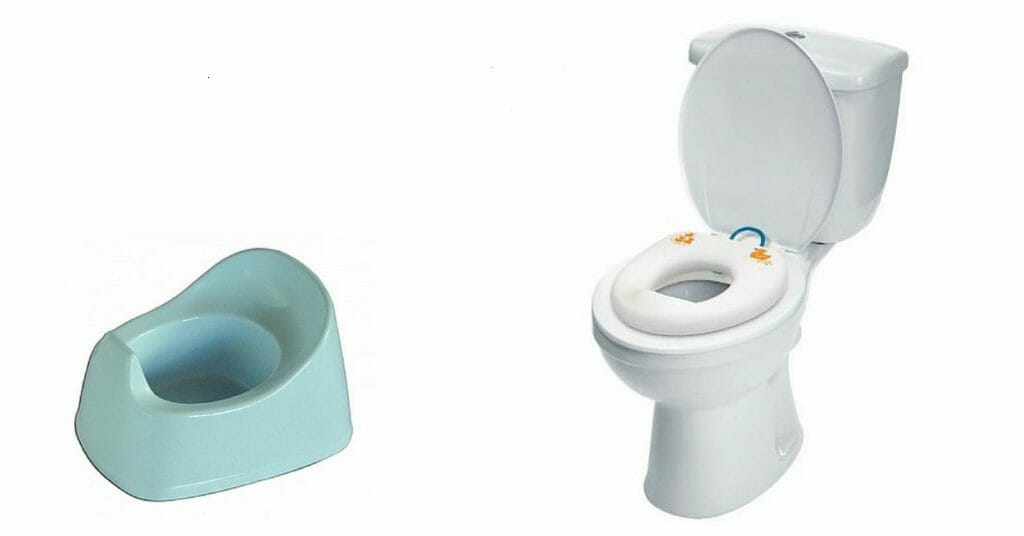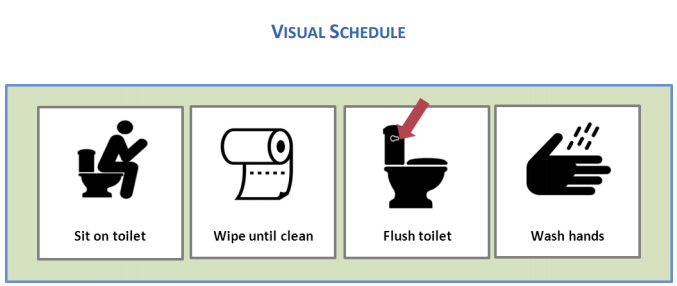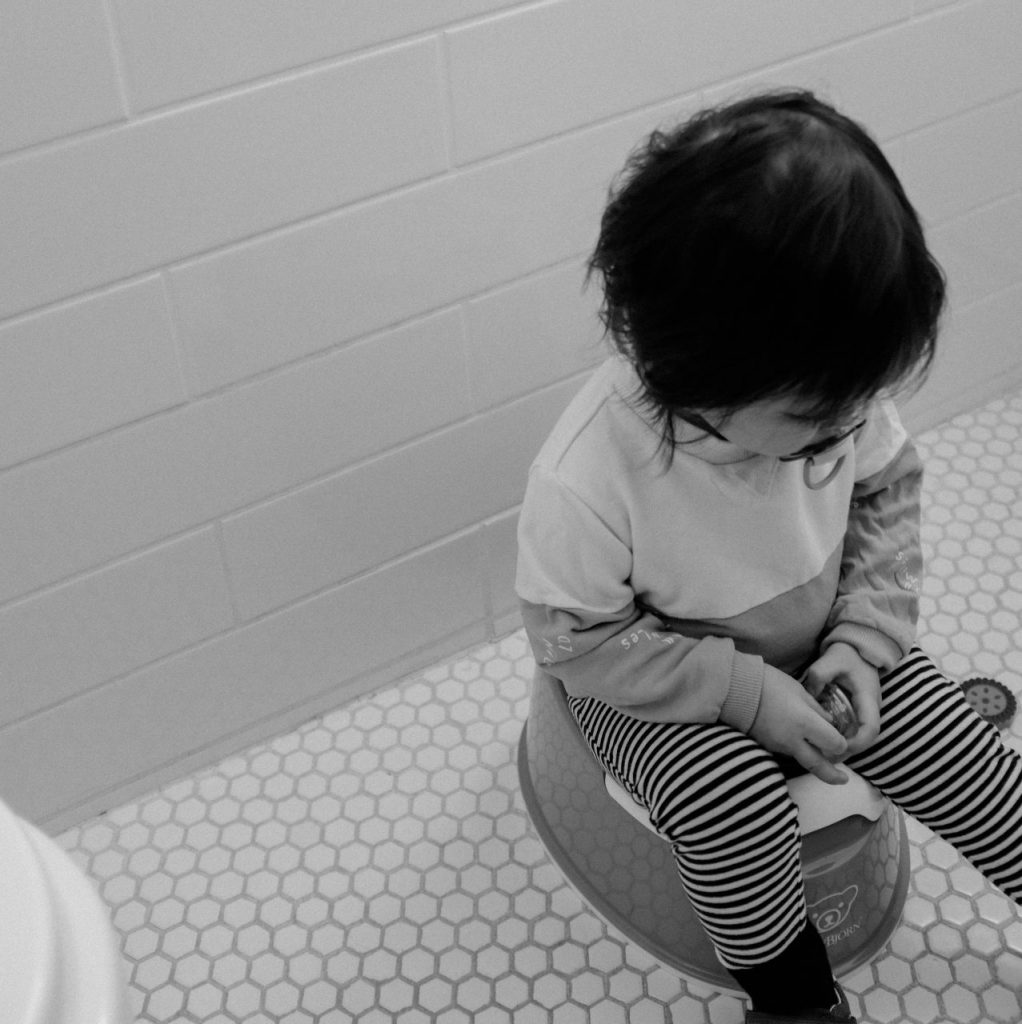Some signs that your child might be ready for toilet training are:
- If they are dry for 2 hours.
- If they are interested in watching others go to the toilet.
- If they start to indicate to you when they have a wet or dirty nappy.
- If they can pull their pants on and off.
- If they disappear when filling their diaper.
Potty or toilet seat/trainer
Children can be very definite in their likes and dislikes at toilet time, so it can be a good idea to give your child some options.
Choices include:
- Toilet seat/trainer (attaches to your regular toilet)
- Potty
- Stool for climbing on
Often at child care your child won’t have the choice of a potty or even a toilet seat, so getting them used to both is a great idea.

Training is everything
- Have a routine around meal times, bath time, and your own daily routine.
- Let your child know that soon they’ll be going to the toilet and they can finish playing afterwards.
- Schedule – i.e. a visual schedule of what’s going to happen in the bathroom is often helpful.

Praise your child for every achievement – no matter how little!
- Reward charts in the bathroom with stickers ready for your child work well.
- Provide praise, hugs, and big smiles for every step.
- Initially your may provide praise just for sitting on the toilet.

Verbalise and gesture
- Use simple instructions, such as “pants up” and “pants down.”
- Demonstrate proper toilet use by letting them accompany you to the bathroom.
Make it easy
- Dress your child in clothes that are easy to get on and off – loose pants work well.
- Use underwear, as training nappies can confuse your child.
- For long drives or outings, you can put a nappy on top of their underwear. Your child will still be getting used to the feeling of wearing underwear and recognise when they’ve gone, but there will be no need for a change in case of accidents.
- Roleplay – take dolls/teddies to the bathroom.
- Have toilet training books in the bathroom.
- Explore bathrooms at grandma’s or a friend’s house.

Empower your child
- Ask your child if they are ready to go.
- Teach your child the language associated with toileting, e.g. “wee,” “poo,” “want to go,” “wash hands,” “pants down,” etc.
- Recognise signs that they need to go, like wriggling, going quiet, or moving away from you – then offer encouragement to go.
- If they don’t go – acknowledge it, say we will try later, and take them off. It’s best not to leave them on the potty/toilet for too long or it feels like a punishment.
Ideas to avoid accidents
Accidents are part of toilet training so just:
- Reassure your child that it’s okay.
- Pay attention – if they want to go, get them there!
- Remind them to go if they are busy and haven’t gone for a while.
- Go to the toilet before leaving the house.
- Travel with a potty/toilet seat if they use that.
- Go to the toilet before bed.
If you have questions about toilet training or your child is 4 years or older and not yet toilet trained, speak to a medical professional. Occupational therapists and physiotherapists can help with toilet training tips.
Keep safe, happy, and well,
Deb




